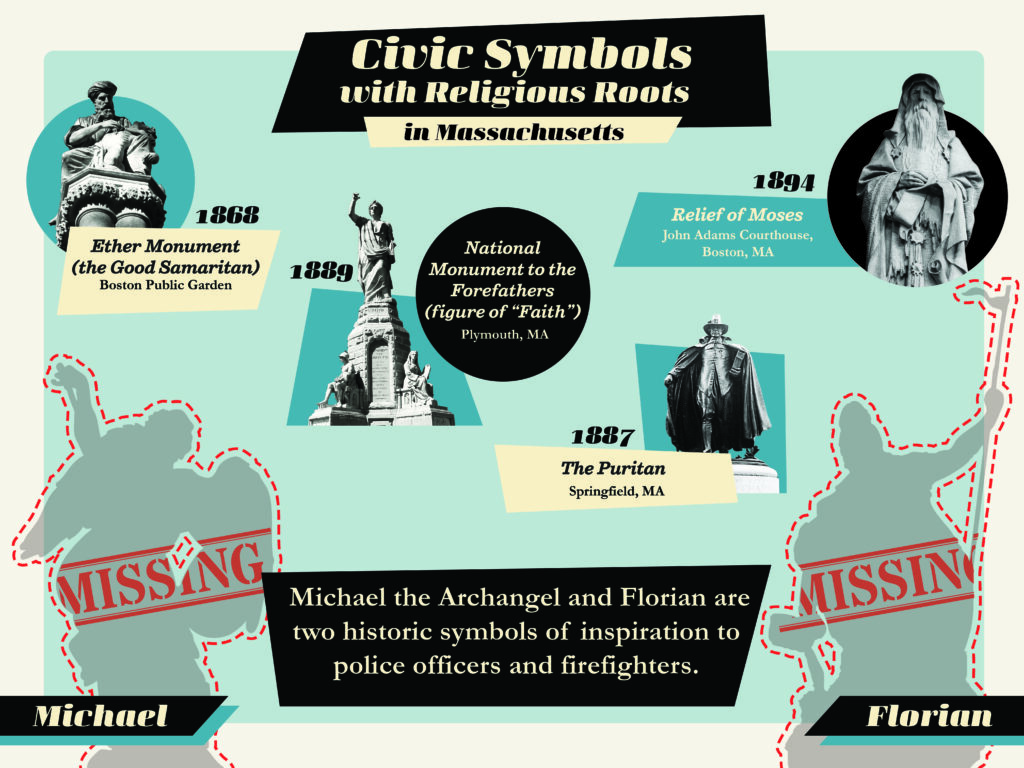City of Quincy will appeal to protect statues honoring first responders City to push back on ruling blocking installation of statues celebrating police and firefighters
Media Contact
Ryan Colby 202-349-7219 [email protected]
Additional Information

WASHINGTON – The City of Quincy, Massachusetts, with the help of Becket, will ask the Commonwealth’s appellate courts to protect its plan to honor its police officers and firefighters with statues of Michael the Archangel and Florian. In Fitzmaurice v. City of Quincy, the ACLU sued in state court to stop the city from installing the statues at the city’s new public safety headquarters, claiming that because the figures have religious significance to some, they could not be used to honor first responders. After the lower court blocked the installation, Becket is representing Quincy in its appeal.
Across the country and around the world, police and fire departments have long used the figures of Michael the Archangel—a figure venerated by many faiths as a protector against evil—and Florian, a historic symbol of firefighting and rescue, to symbolize the ideals of their professions. Fire departments use the Florian cross as their emblem, and police officers often identify with Michael as they pursue their goal of protecting communities against wrongdoers. When the City of Quincy planned its new public safety headquarters, it decided to erect statues of Michael and Florian to reflect this tradition. Quincy commissioned the statues from the same renowned artist who created the city’s statues of John Adams and John Hancock, with the goal of honoring public servants using symbols already meaningful to them.
“We respect every citizen’s beliefs, religious or not. But the statues of Michael and Florian honor service—not a creed,” said Thomas P. Koch, Mayor of Quincy, Massachusetts. “We’re hopeful that the court will reverse this order and allow our city to pay tribute to the men and women who keep our city safe.”
Before the statues could be installed, the ACLU sued on behalf of a group of residents, arguing that Quincy could not honor its first responders in this way because the symbols of Michael and Florian have religious meaning. Last week, a Massachusetts judge issued a ruling in their favor. If allowed to stand, the decision would push cities across the Commonwealth to strip historic symbols from civic life whenever they carry religious associations. But the Supreme Court has upheld the use of symbols with religious roots in public life, including a World War I memorial featuring a cross, when they carry historical, cultural, or commemorative significance. Becket is helping to ensure that Quincy can continue this tradition without being forced to treat religion—or even a perception of religion—as something banned from public life.
“Everyone is free to have their own opinions about public art, but in America, the fact that something may have religious associations is not a legitimate reason to censor it,” said Joseph Davis, senior counsel at Becket. “Our nation, like many others, has long drawn on historic symbols—including those with religious roots—to honor courage and sacrifice. The court should reject this lawsuit’s attempt to block these symbols of bravery and courage.”